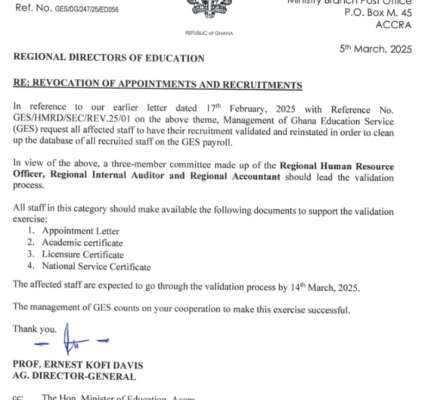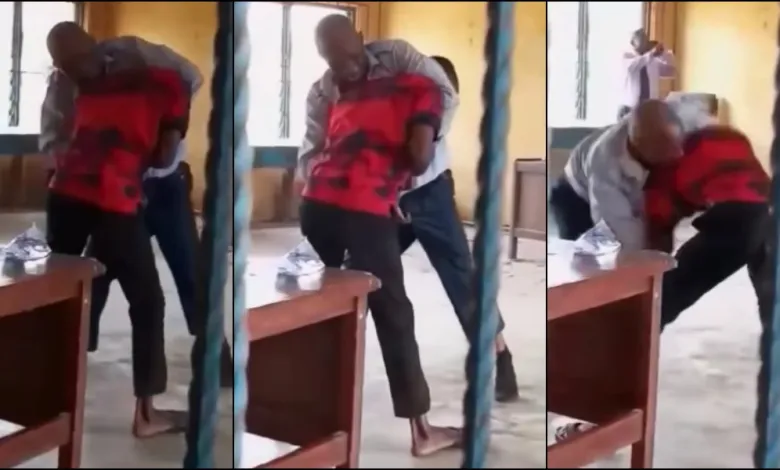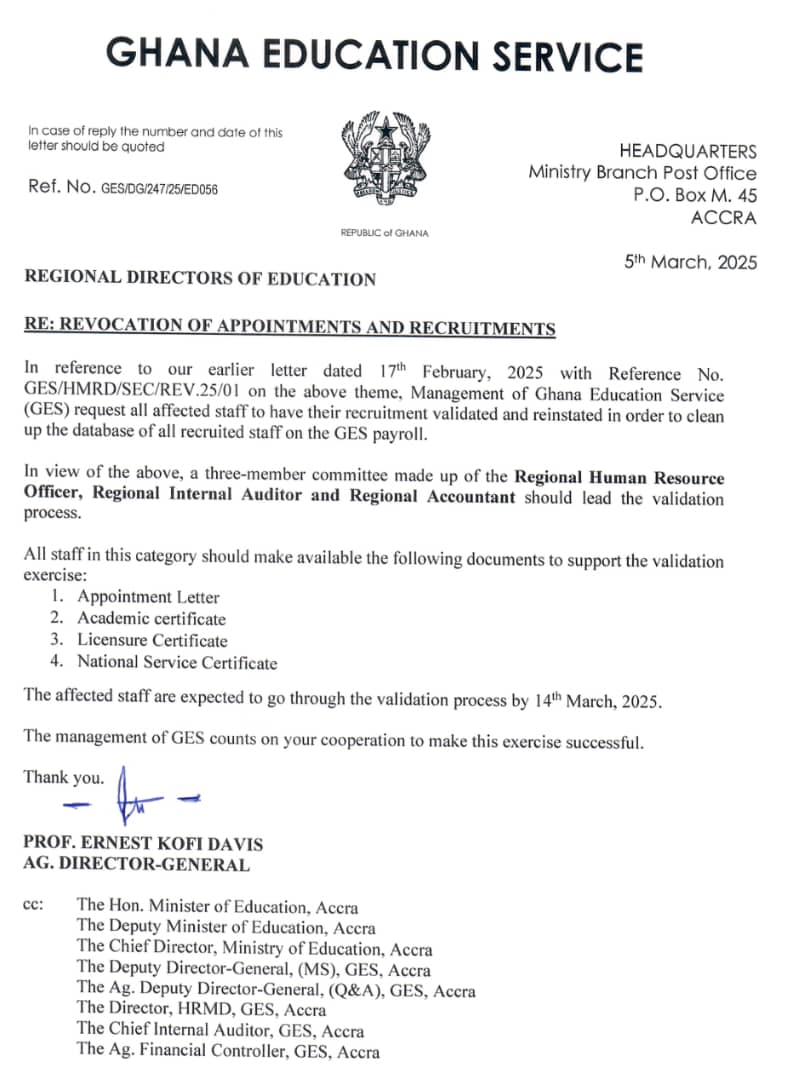Removal of Taxes: President Mahama Abolishes E-Levy, Betting Tax, and Others
source: TV3, Ghana In a historic move aimed at alleviating the financial burden on Ghanaians, President John Dramani Mahama has assented to bills abolishing the Electronic Transaction Levy (E-Levy), the betting tax, and several other controversial taxes. The decision, which…
Munira Adam: The Female Warrior Guarding the King of the Gonja Kingdom
Honoring Women’s Strength on International Women’s Day
Chaos Erupts as Two Teachers Clash in a Heated Fight Inside School Staff Room
Teachers’ Brawl at Ibru College Sparks Outrage and Concern
Ghana Education Service (GES) Moves to Validate and Reinstate Affected Staff After Appointment Revocation
GES Begins Staff Validation and Reinstatement Process After Revoked Appointments
The Hidden Smartphone Hack You Didn’t Know: Why Turning Off Wi-Fi When You Leave Home is a Game-Changer
What you Need to Know about WiFi and Bluetooth in your Smartphones
Fire Outbreak at NEDCo Office in Tamale Destroys Transformers and Essential Equipment
Fire Ravages NEDCo Facility in Tamale, Destroying Transformers and Essential Equipment
Clashes Disrupt Peace Ceremony Between Bawku SHS and Bawku Technical Institute.
Peace Ceremony Between Bawku SHS and Bawku Technical Institute Turns Chaotic, Leaving Several Injured

















